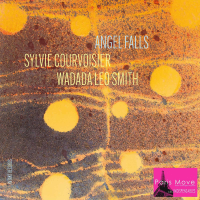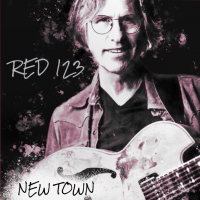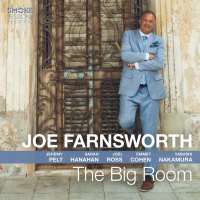Home » Jazz Articles » Herbie Hancock
Jazz Articles about Herbie Hancock
Joe Henderson: Power To the People

by David Rickert
The late sixties were an exciting time for jazz, although not a lucrative one. Faced with a declining market share due to the popularity of rock music, jazz musicians were forced to find an audience by pursuing new avenues in composition and instrumentation. Joe Henderson, a much beloved player for the Blue Note label was dropped in the late sixties. Orrin Keepnews, who certainly could recognize great talent when he saw it, signed him to his newly ...
Continue ReadingHerbie Hancock: Jazz to Funk
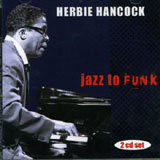
by Graham L. Flanagan
Aussie label AIM's motives might need to be called into question with the release of the new Herbie Hancock set Jazz to Funk. It features the reissues of two obscure sessions from the '60s, both of which have been seen before, albeit under different titles. The first disc, previously released under drummer Albert “Tootie Heath's leadership as Kawaida (and later under Hancock's name as Baraka), features five raw, improvisation-oriented cuts from a 1969 session. Interesting, African-themed work ...
Continue ReadingHerbie Hancock: The Essential Herbie Hancock
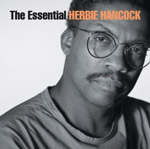
by Judith Insell
The Essential Herbie Hancock, a double-CD set spanning a forty-year body of work, presents a sample of Hancock's bold explorations of various jazz styles. The compilation runs in nearly chronological order, highlighting releases on major jazz labels like Blue Note, Columbia and Verve. The track order makes very clear the varying creative avenues that Hancock has traversed over many decades. Bob Belden is to be commended for providing excellent liner notes which help the listener towards an overall perspective of ...
Continue ReadingHerbie Hancock: Great Sessions
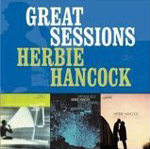
by Chris May
Herbie Hancock's music has been in a continuous state of flux since he first started recording in the early 1960s, yet it's possible to identify four distinct phases in his development: the more or less conventional, if more than usually distinctive, hard bop of the very early days; the restlessly exploratory acoustic music made with the Miles Davis quintet from 1963-1968, and under his own name during that period; the post-Davis electric experiments with the sextet, Mwandishi and Head Hunters ...
Continue ReadingHerbie Hancock: Possibilities

by AAJ Italy Staff
Il buon Herbie Hancock tira fuori dal cilindro una nuova zampata d'autore che fa capire che quando il marketing gli lascia un po' di spazio la sua arte cristallina non ha alcuna difficolta' ad emergere. Non che il marketing sia assente da questo progetto, che vede il tastierista affiancato da una dozzina abbondante di celebrita'. Ospiti che certamente contribuiranno ad allargare il mercato ma che servono anche a dare sapori piuttosto disparati che la presenza di Hancock riesce ad unificare. ...
Continue ReadingHerbie Hancock: Possibilities
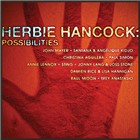
by John Kelman
First things first: Herbie Hancock's new record is unabashed pop. A “project in the truest sense of the word, Possibilities was built by Hancock from the ground floor up by enlisting a group of singer/songwriters—some older, some younger; some established, some up and coming—as the spirit moved him over a lengthy period of time. This isn't a case of Hancock and rhythm section bringing some singers to a session; instead, Hancock went from place to place, going where the music ...
Continue ReadingBobby Hutcherson: Oblique

by Chris May
A welcome and worthwhile addition to Blue Note's Rudy Van Gelder remaster series, Oblique is one of only two quartet albums Bobby Hutcherson recorded for the label, and it's the most enduring by a long mile. Two tracks in particular, “Oblique" and “Bi-Sectional," both by genius drummer/composer Joe Chambers, are bona fide, five star hall-of-fame greats.
Hutcherson's first quartet album was Happenings, recorded in '66. Oblique followed in '67. The lineup on both occasions was the same except ...
Continue Reading




